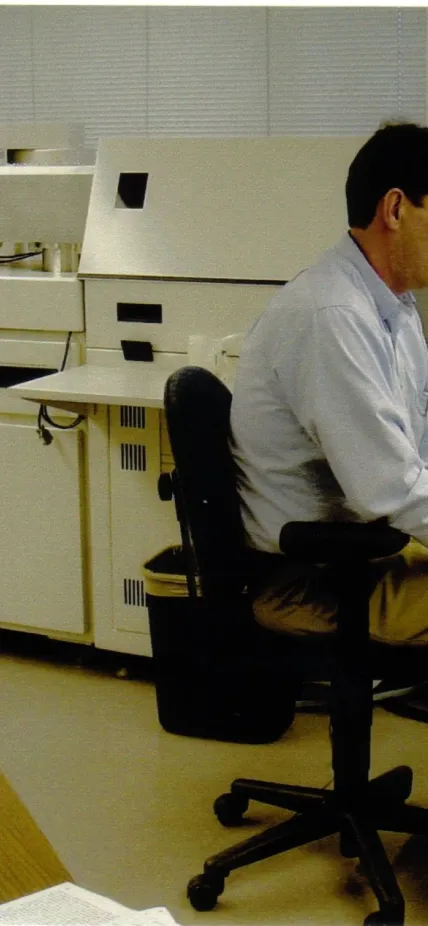In a world where scientific breakthroughs often take center stage, it’s easy to overlook the unsung heroes who make these discoveries possible. For 26 years, Timothy D. Mock has been the quiet force behind the intricate machinery at Carnegie Science’s Earth and Planets Laboratory (EPL), where he serves as the mass spectrometry lab manager.
Earlier this year, Mock was named one of two recipients of the 2024 Service to Science Award—a fitting honor for a career spent ensuring that Carnegie Science’s Earth and Planets Laboratory remains at the forefront of isotopic research.
The mass spectrometry facility at Carnegie’s Broad Branch Road campus is a powerhouse, home to six state-of-the-art instruments with a combined value exceeding $3.5 million. These machines are the lifeblood of Carnegie’s geochemistry and cosmochemistry research, enabling scientists to unlock the secrets of our planet and beyond.
But these instruments, for all their sophistication, are only as good as the person who maintains them. For more than two decades, that person has been Mock.
Mock’s expertise is not just about keeping the lights on; it’s about ensuring that these complex machines—thermal ionization mass spectrometers, inductively coupled plasma mass spectrometers, laser ablation systems, and more—operate at the highest level of precision. His ability to diagnose and repair these instruments down to the printed circuit board is extraordinary. It’s a skill set that has saved Carnegie hundreds of thousands of dollars, as Mock keeps these machines running without the need for expensive service contracts.
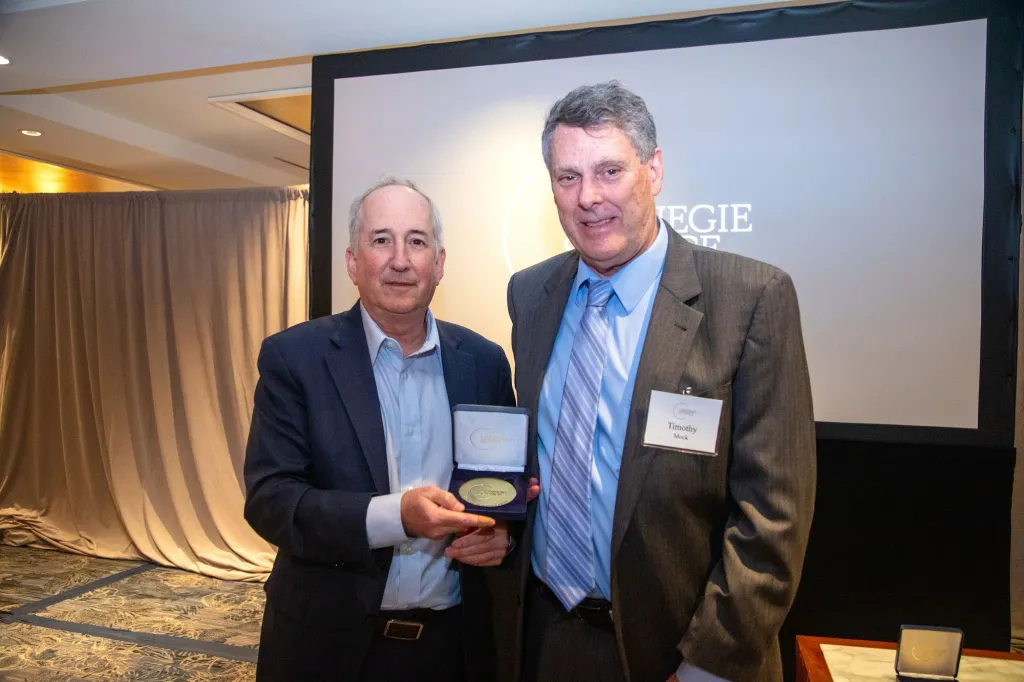
Carnegie Science President Eric Isaacs presented Timothy Mock with the Service to Science Award at the May 2024 Board of Trustees Dinner.
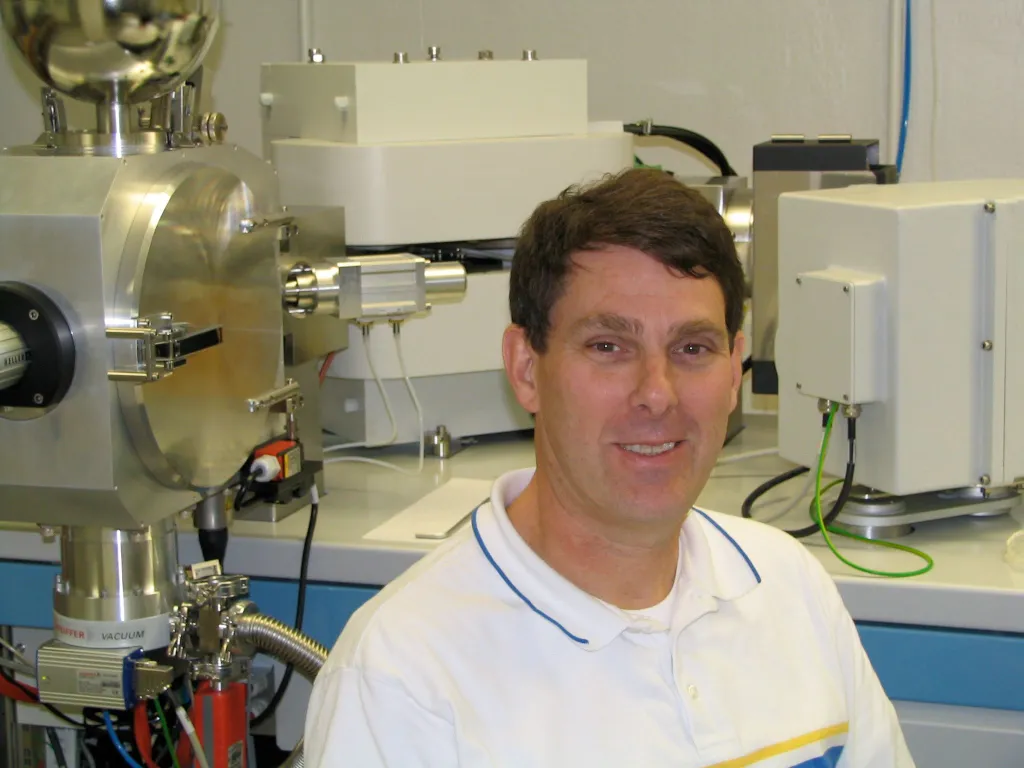
Timothy Mock sits for a portrait in the Mass Spectrometry Lab in 2004.
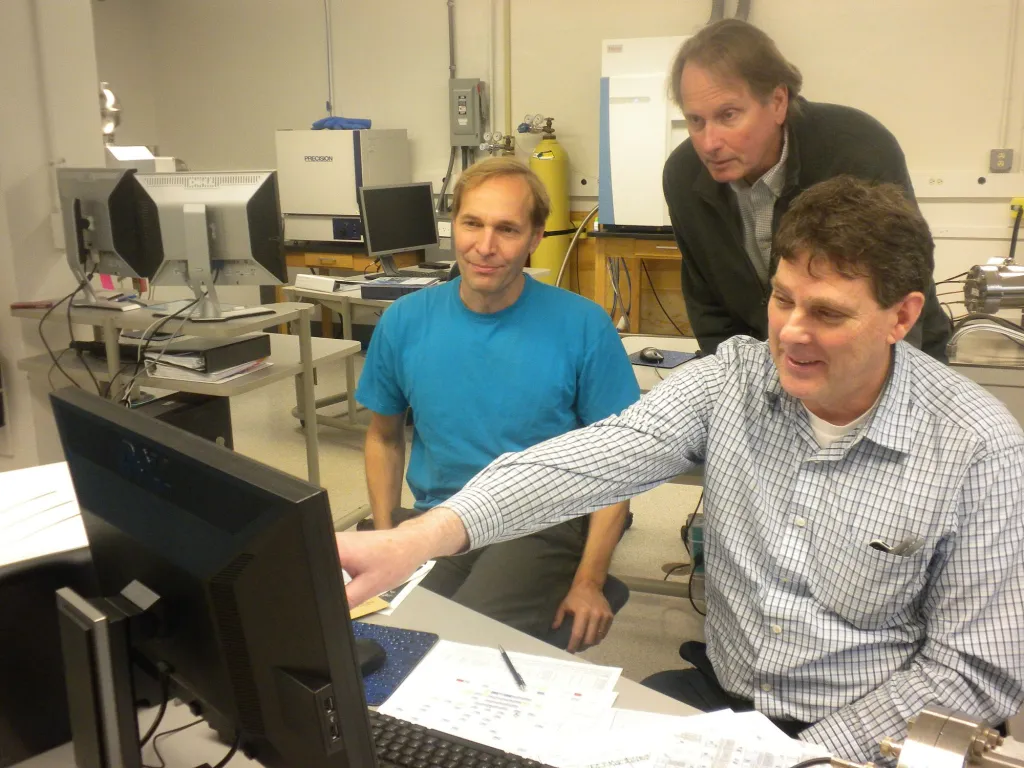
Timothy Mock (right) points at a screen in the Mass Spectrometer lab while cosmochemist Conel Alexander (left) and theoretical astrophysicist Alan Boss (middle) look on.
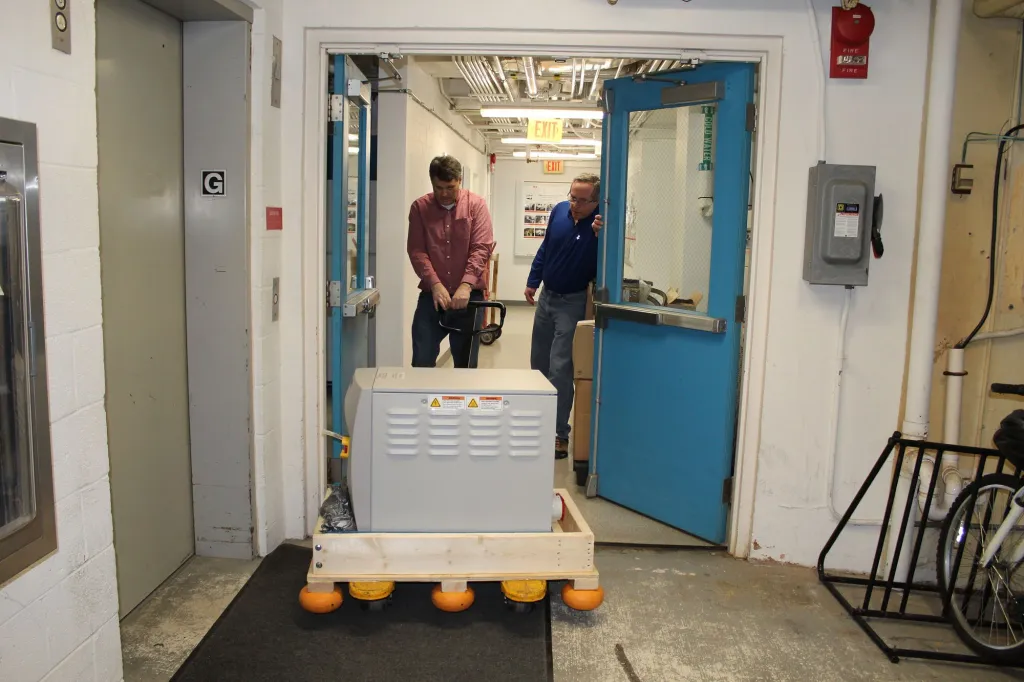
Timothy Mock works with Director Richard Carlson to install a new Mass Spectrometer. The instrument, installed in 2019, allows for a diverse range of high-precision isotope ratio measurements that allow geochemists and cosmochemists to improve our understanding of the origin and evolution of the Earth and other rocky planets and planetesimals in our Solar System.
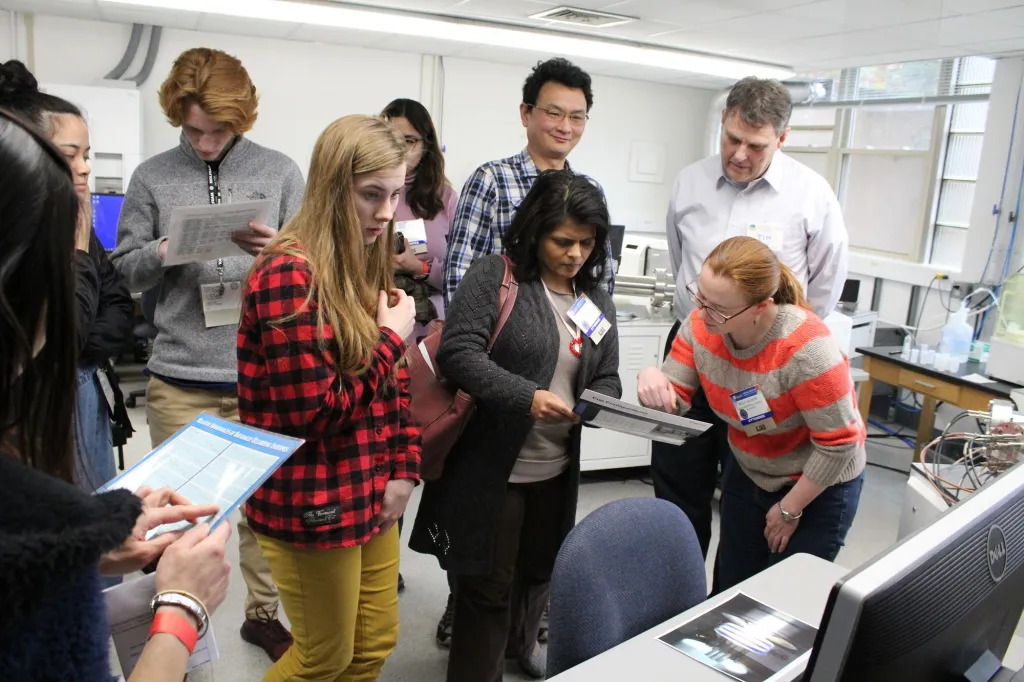
Timothy Mock gives a behind-the-scenes tour of the Mass Spectrometry lab to high school students from the 2019 American Junior Academy of Science conference.
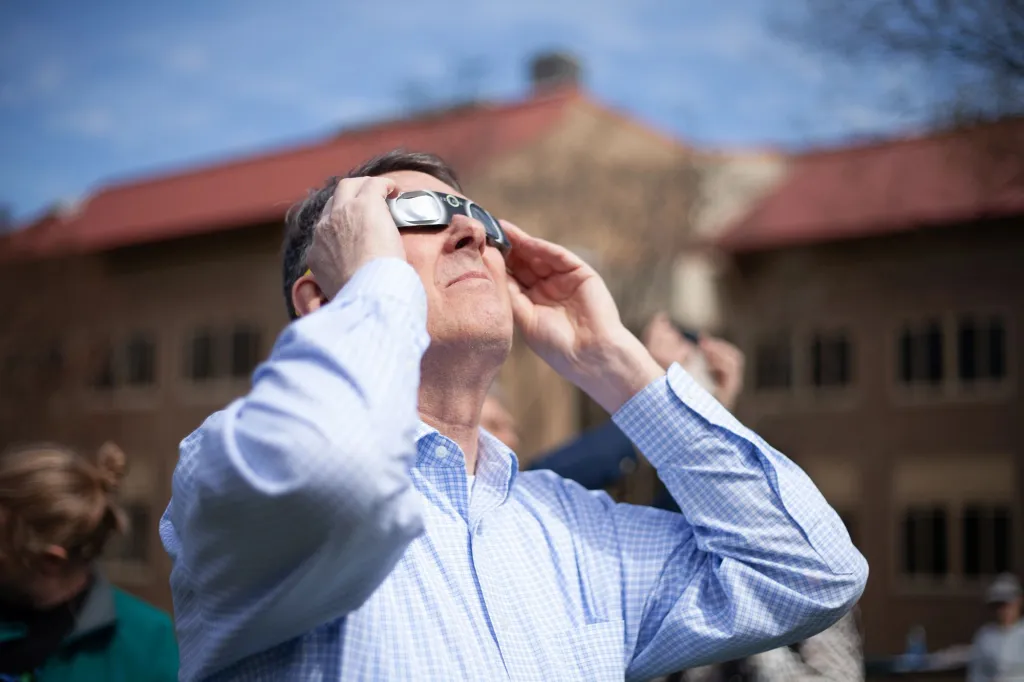
Timothy Mock watches the 2024 eclipse along with the rest of the Earth and Planets Laboratory community.
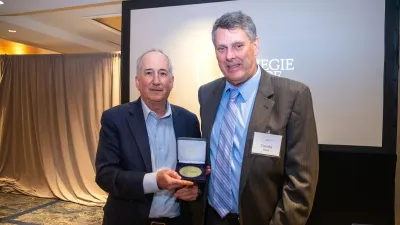
Carnegie Science President Eric Isaacs presents the Service to Science Award to Timothy Mock at the May 2024 Board of Trustees Dinner.
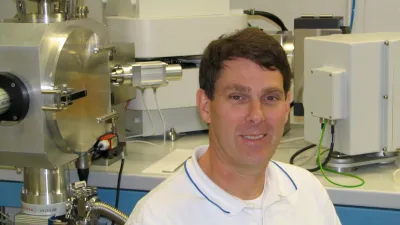
Timothy Mock 2004 Portrait
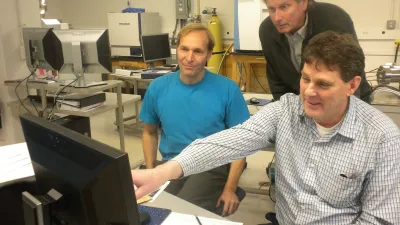
Cosmochemist Conel Alexander (left), theoretical astrophysicist Alan Boss (middle), and Tim Mock (right)
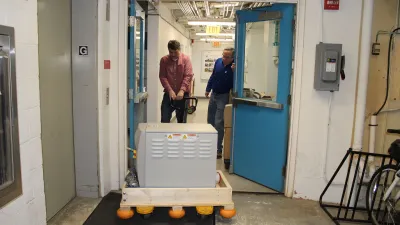
Carnegie scientists set up DTM's new mass spectrometer at Broad Branch Road
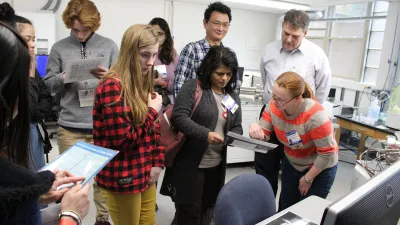
Timothy Mock gives a tour of the Mass Spectrometry lab to high school students from the 2019 American Junior Academy of Science conference.
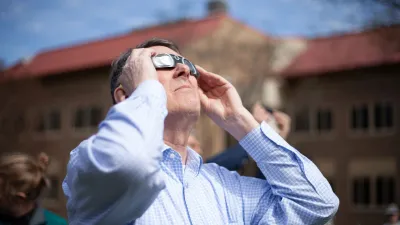
Viewing the partial solar eclipse at the Broad Branch Road campus
Beyond his technical prowess, Mock has trained more than 150 postdocs and visiting scientists, guiding them through the intricacies of the lab’s equipment. His patient mentorship has ensured that the next generation of scientists is well-prepared to carry on Carnegie’s legacy of hands-on expertise.
His role also requires a cool head under pressure. The samples processed in the mass spectrometry lab are often irreplaceable, the result of weeks or months of meticulous preparation. Yet, Mock consistently ensures flawless performance under the most demanding conditions. His commitment extends beyond regular hours—he’s the first to respond during emergencies, whether a power outage or a flood, and has even set up remote systems to troubleshoot issues from afar.
Recently, as new staff joined the division’s geochemistry team, Mock took on the added responsibility of managing a significant renovation of the mass spectrometry facilities. His deep understanding of the equipment and its role in broader research objectives was crucial to the project’s success.
As Mock approaches retirement, it’s clear that his impact will be felt for many years to come—in both the data his machines have produced and the scientists who were fortunate enough to work alongside him.
